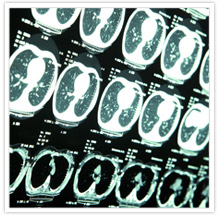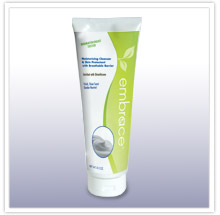 |
 |
Three Steps to Perineal Skin Care Exposure to incontinence and moisture can lead to a number of skin-related complications that range from irritation to increased risk of skin breakdown. Moisture can also make already-delicate skin more susceptible to damage from friction and shear during repositioning.1 Additionally, when perineal skin is exposed to urine or stool for extended periods of time, incontinence-associated dermatitis (IAD) can begin to develop.2 The good news is that these complications can be prevented through proper skin care. According to the Centers for Medicare & Medicaid Services (CMS), there are three key steps to keeping the |
|
perineal skin of your incontinent residents healthy: cleansing, moisturizing and protecting. Tag F-315 of the State Operations Manual notes that research has shown that a soap and water cleansing regimen (which can dry the skin) might be less effective in preventing skin breakdown than a routine that includes no-rinse incontinence cleansers and moisture barriers.1 By choosing a product that performs multiple functions, you can save valuable staff time and increase efficiency. For example, you might consider using a no-rinse cleanser that also contains moisturizers and dimethicone to protect the skin. Professional Medical has created an in-service guide to take you step by step through caring for delicate skin. It’s conveniently located on our website and can be downloaded here. Our territory managers are also ready to tell you more about our complete line of skin care products! Just give us a call at (800) 648-5190. Reference 1 Centers for Medicare & Medicaid Services. State Operations Manual. Appendix PP - Guidance to Surveyors for Long Term Care Facilities. Rev. 70, 01-07-2011. Available at: http://cms.gov/manuals/Downloads/som107ap_pp_guidelines_ltcf.pdf. 2 Gray M. Incontinence-related skin damage: essential knowledge. Ostomy Wound Manage. 2007 Dec;53(12):28-32. |
|||
 |
Blood-Sugar Levels on the High End of the Normal Range Can Lead to Brain Shrinkage A new study has found that blood-sugar levels that are at the upper end of the normal range can still be detrimental to the brain. Being on the high end of the normal range - in other words, not high enough to be classified as diabetes or prediabetes - can make somebody more likely to have brain shrinkage in certain areas than people with lower blood-sugar levels. Previous studies had linked Type 2 diabetes to brain shrinkage. The researchers noted that their findings could lead to the reevaluation of normal blood-sugar levels and the definition of diabetes. The study involved 249 people, aged 60 to 64, whose blood-sugar levels were in the normal range as defined by the World Health Organization (WHO). To learn more, click here. |
|
Product pricing is only visible to registered promedsupply.com customers. If you are not yet registered, give us a call at (800) 648-5190 and our Customer Care Professionals will be happy to get you set up. |
|||
 |
|||
 |
|||
 |
